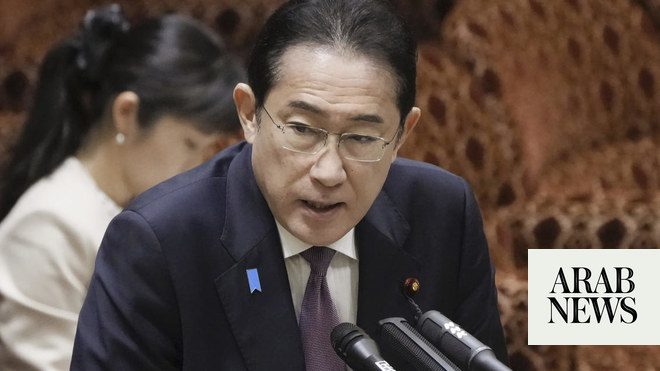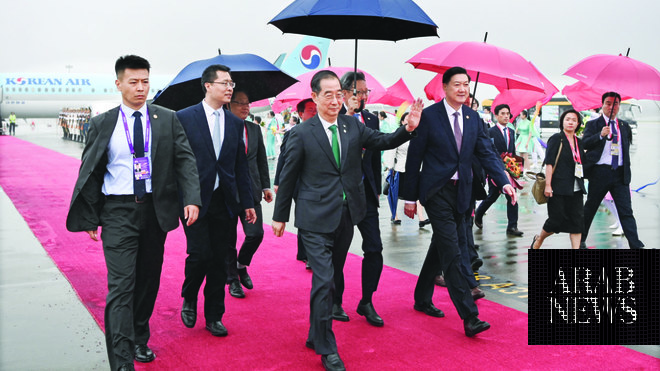
Japan was ready to hold talks with North Korea’s Kim Jong Un, days after the landmark meeting between US President Donald Trump and leader of the isolated country.
Efforts are underway to arrange a meeting between Japanese Prime Minister Shinzo Abe and Kim, local media reported Thursday.
The Sankei Shimbun said Kim discussed the possibility during his talks with Trump in Singapore on Tuesday.
"During the summit with Trump, Kim told Trump I can meet with Prime Minister Shinzo Abe," the Sankei reported.
Japan wants the talks to push the emotive issue of citizens abducted by the North decades ago, which has seen little movement despite a whirlwind of diplomacy in recent months.
Abe on Thursday repeated a pledge to push for dialogue with Pyongyang on the issue as he met families of abductees.
"I will face (North Korea) directly and work toward resolving the abduction issue," he told the families.
"Japan has to take the initiative to resolve the issue," he said, adding that the summit would be "meaningless if it yields no progress on the abduction issue".
Government officials are weighing several scenarios, including Abe visiting Pyongyang in August, the Yomiuri Shimbun reported.
Another scenario would see Abe meet Kim on the sidelines of a conference in Russia in September, the daily said.
Abe has already said publicly that he would be willing to meet Kim in order to resolve the abduction issue.
Japanese foreign ministry officials plan to hold talks with North Korean officials at an international security conference in Mongolia this week as they try to firm up plans, local media said.
The issue of Japanese citizens who were abducted in the 1970s and 1980s to help Pyongyang train its spies has long soured already strained relations between Tokyo and Pyongyang.
The Japanese government has officially listed 17 people as abductees, but suspects dozens more were snatched.
Trump said Tuesday he discussed the abductee issue with Kim, but it was not mentioned in the document signed by the two leaders.
Japan has maintained a hardline position on North Korea despite the stepped-up diplomacy with Pyongyang in recent months, and has been left largely on the sidelines as South Korea and the United States have held talks with Kim.
In Seoul, US Secretary of State Mike Pompeo said Kim understands that denuclearization must happen "quickly", warning there will be no sanctions relief for Pyongyang until the process is complete.
Washington remained committed to the "complete, verifiable and irreversible" denuclearization of North Korea, he added after the US-North Korea summit drew criticism for its vague wording on plans for Pyongyang to give up its nuclear weapons.
Washingtons top diplomat was in Seoul to brief his South Korean and Japanese counterparts after Trumps post-summit comments sparked confusion and concern in Tokyo and Seoul.
But Pompeo insisted at a joint press conference with the two countries foreign ministers that there was no daylight among the allies on how to achieve the denuclearization of North Korea.
Contrasting the Trump policy with previous US administrations, Pompeo said: "In the past, they were providing economic and financial relief before... complete denuclearization had taken place."
"That is not going to happen, President Trump made that clear."
The UN Security Council punished North Korea over its weapons programs with increasingly strict sanctions last year, which were also backed by China, Pyongyangs only ally.
Trump said after his meeting with Kim -- the first between sitting US and North Korean leaders -- that Washington would halt its joint military exercises with South Korea, an announcement that caught Seoul -- and apparently the Pentagon -- by surprise.
The US and South Korea conduct massive annual military exercises to maintain readiness for operations on the peninsula, a source of irritation for Pyongyang, which considers them preparations for an invasion.
South Korean Foreign Minister Kang Kyung-wha appeared to sidestep the issue at the joint press conference, saying the matter would be left to military authorities to discuss, and that the US-South Korea alliance remains "as robust as ever".
While it is not directly involved, Japan also considers the drills vital.
The "deterrence based on them (plays) an essential role for security in northeast Asia", Japanese Foreign Minister Taro Kono said after "frank" trilateral talks Thursday.












